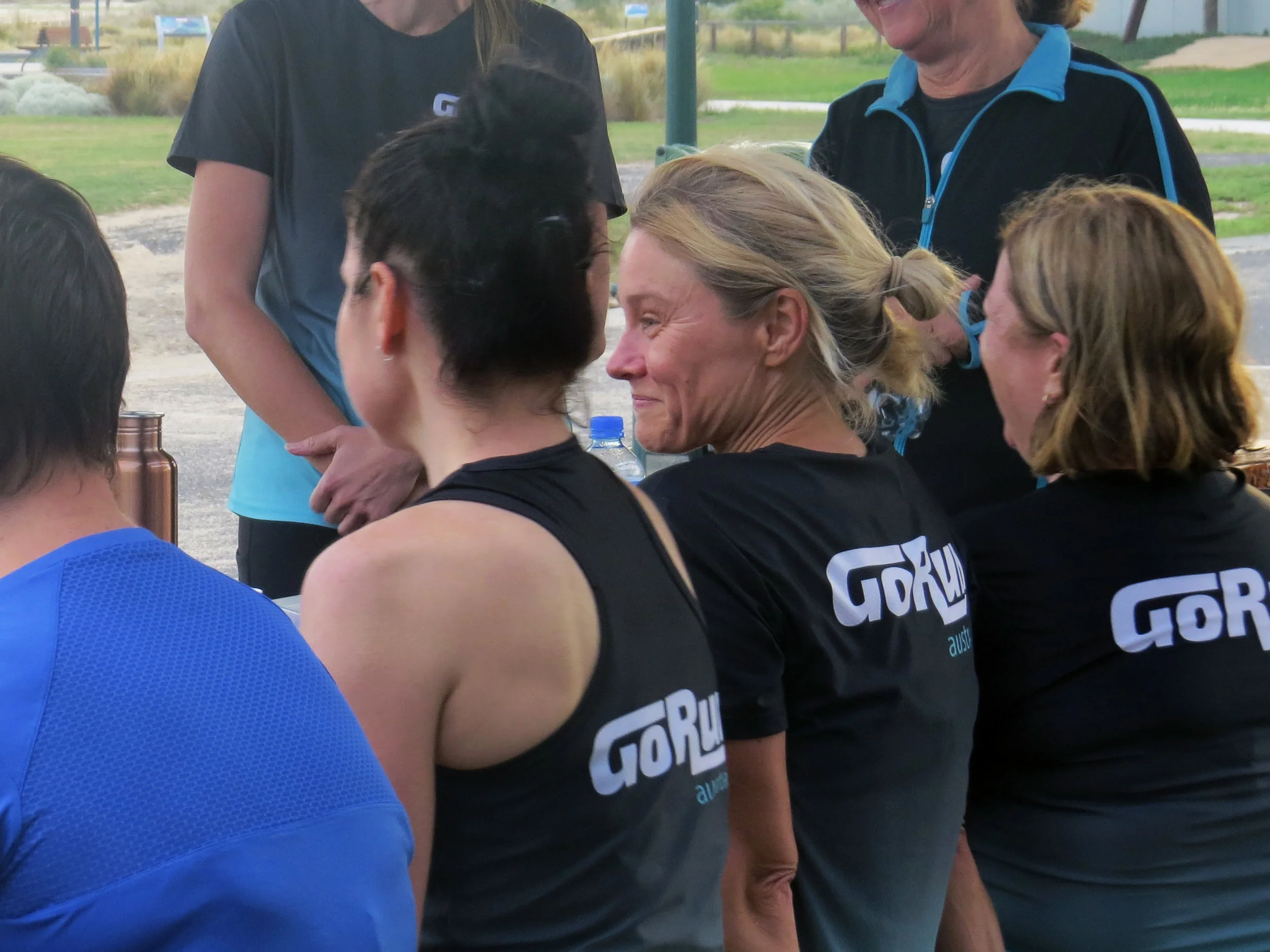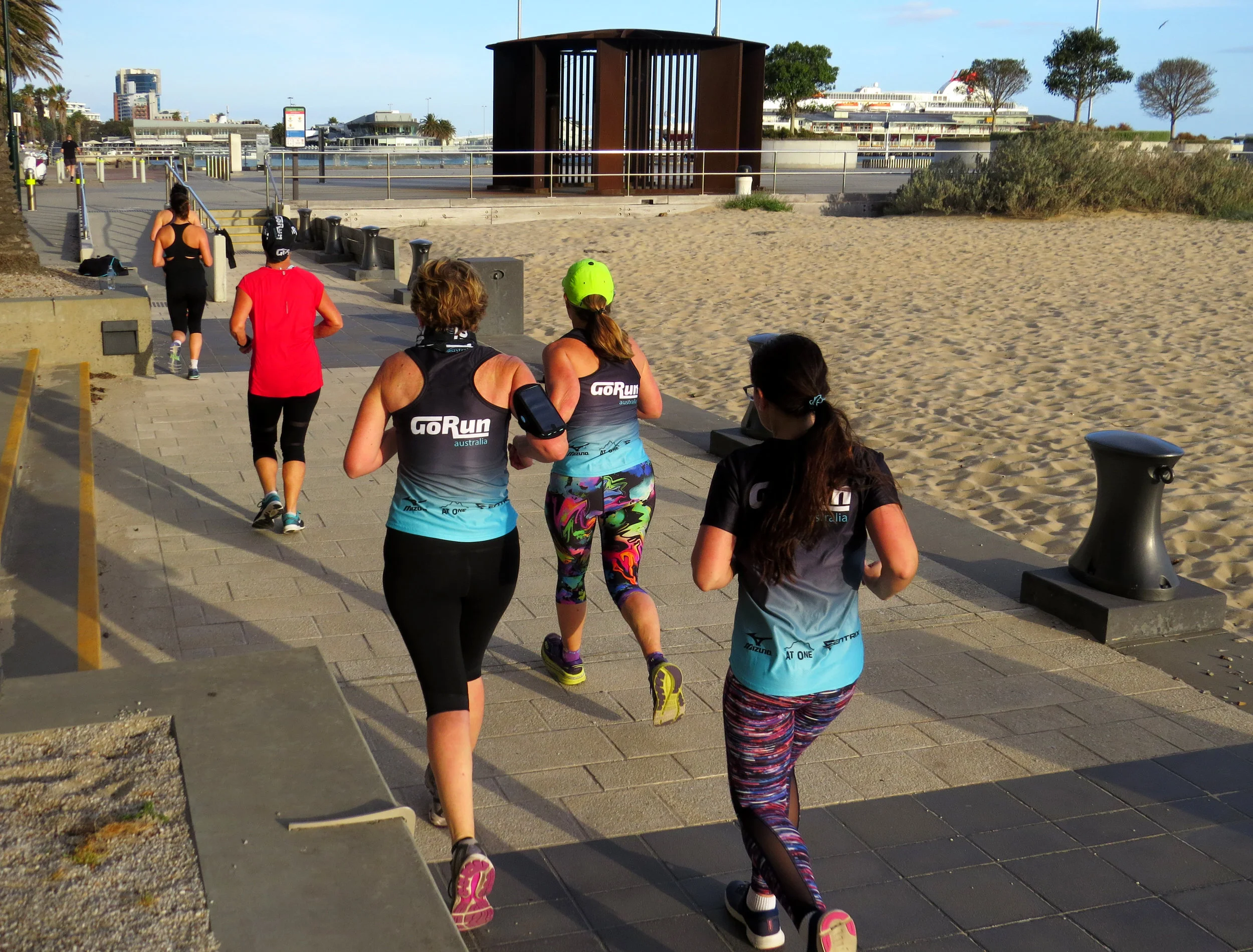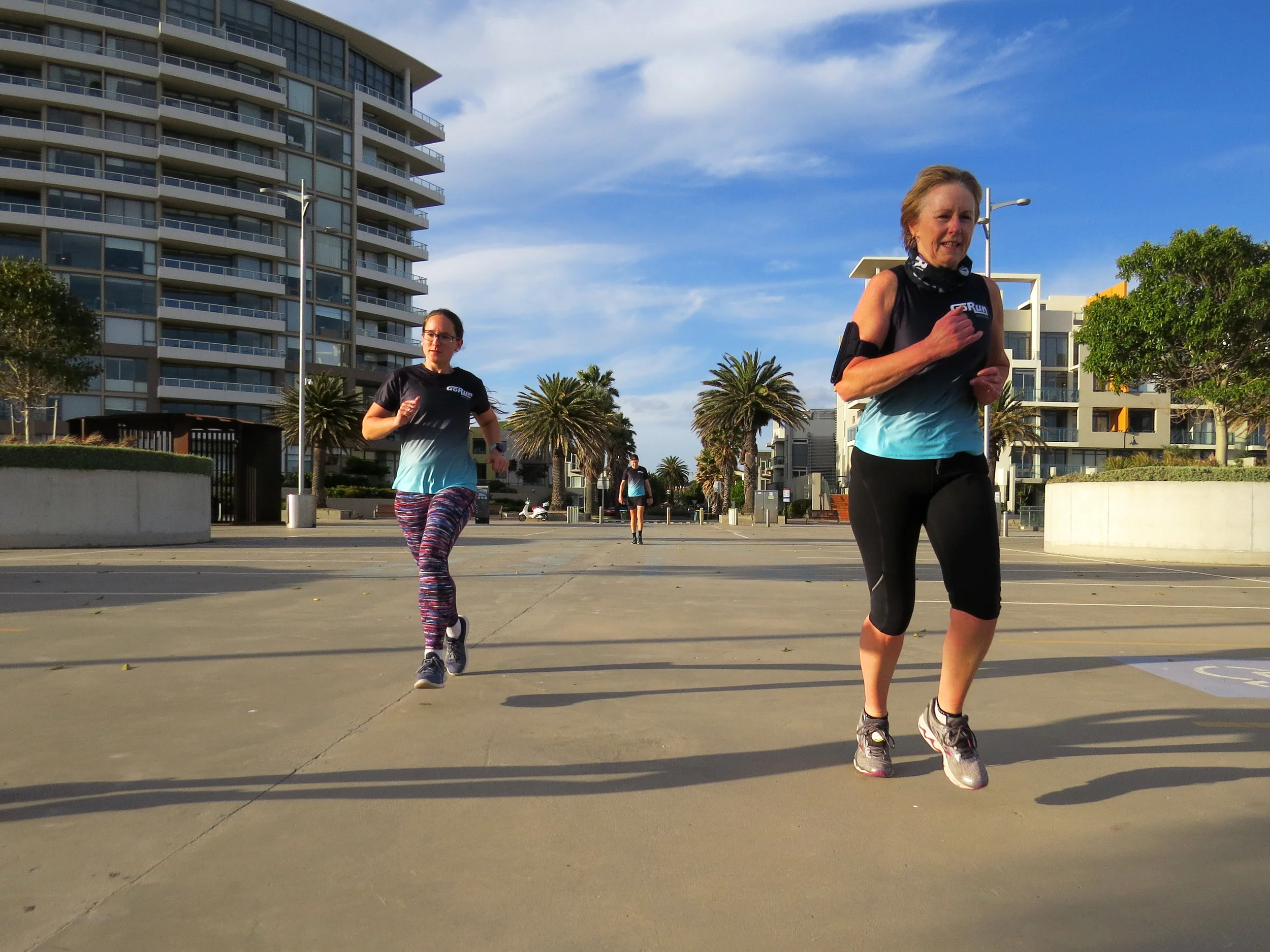Getting back into running is fraught with emotional hurdles that we have to overcome. Statistically those first 3-4 weeks are the hardest and where we have the most to endure both physically and mentally. Just look at the numbers of people that 'fall off the bandwagon' after New Years. It kills me every year seeing the numbers of runners slowly declining as we get into February, March and April. Surely we can break through this!
Are we in danger of data overload?
Coach Kylie and I were lucky enough to get an invite to the recent Sports Analytics Conference in Melbourne, courtesy of the awesome team at Red Bull. Now...I’m definitely not a data nerd but I am intrigued by the use of technology in running, triathlon and other sports. To be honest, I am less intrigued by the technology itself, and more our use of it and the interpretations that come from it.
There were hundreds of people in attendance from all over the world and presenters from professional sports organisations in the USA, Spain, Sweden, UK, Australia and beyond. Some of the most recognisable names of clubs in sport were on the attendee lists and it was a great opportunity hear some of the themes and debates and potentially apply these to the everyday runner.
So, what did we learn?
Comparison is the devil...
Comparison is the devil. Well, maybe that's a bit extreme, but I rarely find comparisons helpful in my line of work.
When I raise the issue of comparison with people you often see wry smiles and subtle nodding of heads. Everybody does it but yet most people feel worse because of it. The problem is that its addictive. We can’t help ourselves!
Too Far, Too Fast, Too Often.
We’ve all been there as beginners, even some of the fastest runners you know probably began with those awkward, embarrassing first runs / walks and suffered from the same things that we do, but even with that in mind, I did not expect people of all experiences, shapes, sizes, abilities, ages to contribute to this debate. I don’t know what I expected to be honest, but certainly not the detail and emotive comment that I got back. The responses certainly gave me a renewed want to try and help people by addressing these issues in my coaching.
One of the main issues that came through in the responses was that of wanting to go longer, harder and faster every time you run.
The 80/20 of Running
Even in my few short years coaching recreational runners to achieve their goals, you can start to pick out a few key themes and messages that are likely to stand the test of time and outlast whatever the latest, hilarious marketing trends of the week are.
One of those key messages is the importance of the mental side running, as opposed to the physical side.
We Fall to the Level of our Training
An old coach of mine had a very simple saying, "finish at the finish."
Seems simple enough to do, right?
In a race or event, this absolutely makes sense but he also used to say this during almost every training session. Whether it was an easy recovery run or a hard interval session, 'finish at the finish' still rings true. Just like you can’t imagine stopping your race 100 metres before the finish line, nor should you imagine this during training. We are creatures of habit and by finishing actually at the finish and not before, we are looking to create a positive habit that is reinforced in each and every session, not just when the coach is looking.
We're all still learning. Even the coaches
Even coaches still benefit from being coached. Whilst they are busy sharing their knowledge with others and helping to structure their training, increase accountability and get results, they too, can do with help from time to time. There are coaches out there who are former athletes, there are coaches who have never been athletes and there are coaches like myself, who still have athletic ambitions. There are plenty of pro’s and cons to each situation, but no matter what a coach' own personal experience in the sport, few coaches would claim that they know it all. In fact, if they do claim to know it all, I would say that they are deluded.
How to find the right running group for you...
Our Run Group in Port Melbourne has been going for a couple of years now and during that time, I have been asked a lot of questions both as the coach and as the organiser. There are certainly themes to these questions and one of the big ones is around ‘fear.’ That fear is usually shown in the person not wanting to be the “worst" or slowest person in the group. One new arrival even messaged me before their first session to say, “I've never joined a running group before. I'm probably going to be way behind even the slowest person there.”
How to choose the right next event for you
The post race break usually means a quadrupling of our food and alcohol intake (particularly in ‘fat week’), accompanied by plenty of reflections on the race that has gone, discussions about what we enjoyed, where you can improve, and questions about what race might be next. This down time and reflection period is really important. It allows for recovery both mentally and physically, but it usually isn’t long before the ‘What’s next?’ question rears its head… Cue animated predictions, planning sessions and discussions with friends for races that we want to sign up for.
With so many events on the running calendar these days and entry costs going through the roof, it is becoming tricky (and expensive) to decide which event is actually the right event for you.
Keep it Simple: Learnings from the Brownlees
Outside of running, I have an interest in triathlon. Yes, I know it includes running, but its only a third of the whole package. Having trained as a triathlete and having a triathlon coach has in turn taught me a lot about my own running, particularly in the areas of overall aerobic fitness, recovery and balancing a hectic training schedule.
Two of the most prominent triathletes on a global stage over the past 10 years are actually brothers, Alistair and Jonny Brownlee.
How to stop digging and start recovering
Lots of runners are keen to do the physical running that forms the bulk of their training, but not so keen to get the right amount of rest and recovery that will actually enable them to run at their best. Unfortunately this is an all too common approach that many recreational runners as they dig themselves into physical holes or repetitive cycles of injury, which could have been avoided through adequate rest and recovery.
Given that we are coaching and running in the ‘endurance sports’ space, the number of hours spent training and the subsequent stress that we on our bodies, is high. As a result, we have got to make sure that we recover adequately and give something back to our bodies.
So what can we do ourselves to help our own recovery?
My Bumpy Journey to Consistent Running
Any attendees at GoRun Group over the past couple of years will know Caz. Caz left Melbourne and moved to Switzerland with her husband, Michael at the beginning of 2019, where she is still running and progressing in leaps and bounds. However, Caz has suffered her fair share of frustrations as a runner, with tight and painful lower legs whenever she ran, an issue she never thought she would be able to break through. Thankfully things are on the up, but Caz wanted to share her story of the bumpy road to consistent running, as other runners suffering the same frustrations may be able to relate. Here is her story, in her own words…
The Last Mile: How to Stop Fading and Finish Your Runs Stronger
One of the key things that I try to instil into the runners that I coach, is to "finish strong.” They are two simple words that may not seem like much when written into a training plan, but they make an enormous difference to how you run.
To show you what I mean, take a second to think about the different feelings in these two scenarios…
What to do when you hit a parkrun rut...
It’s probably not a very politically correct thing to say, but yes sometimes you can fall out of love with parkrun. Having done over 150 parkruns, I can very safely say that the vast majority have been hugely enjoyable experiences and I would not trade my Saturday morning jaunt around the lake for much else. I have dressed up, ran with no shoes, come first, come last, plateaued, PB’ed, paced people, raced people and most things between! However, like many parkrunners, there have been times when my motivation has dipped and you sometimes just fall out of love with it for a while. Now, I am not a doctor but I am going to diagnose this as 'hitting a parkrun rut.'
So when this awful ‘rut' strikes, what can you do?!?
Shin Splints: What are they and how to treat them?
Ask most runners about injuries and at some point they will talk about shin splints. For many beginner runners in particular, this injury is the one that stops them running and stops them from gaining that all important consistency. As a coach I have seen this injury crop up a few times, so I decided to ask our resident physio, Sally Maple from Port Melbourne Physio and Pilates to give me some expert advice on shin splints, what they are, why they occur and how we can treat them.
So what are shin splints?















